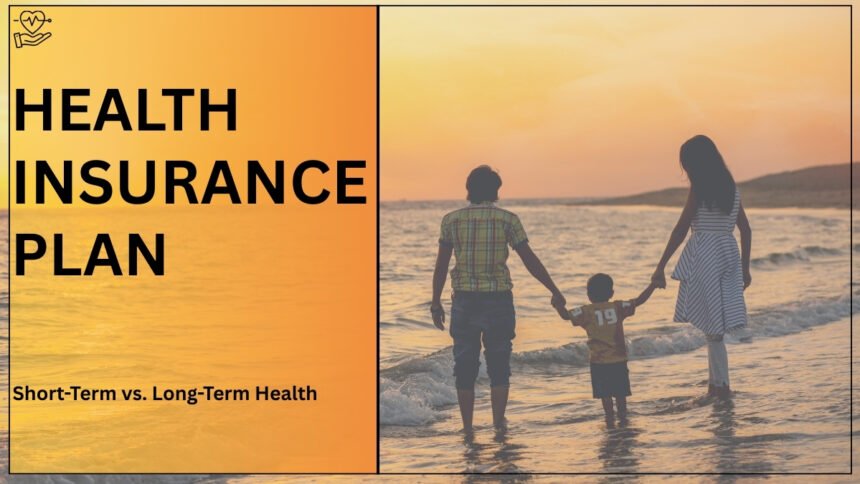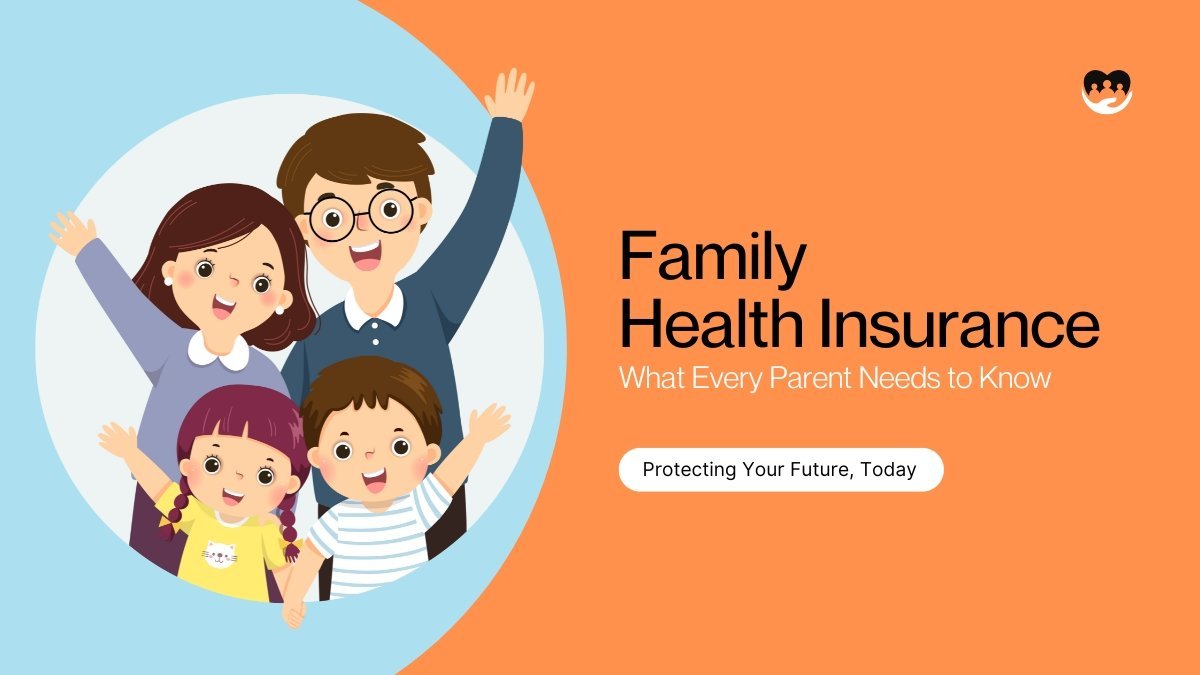Short-Term vs. Long-Term Health Insurance : Health insurance is one of the most important investments you can make for your well-being and financial security. But when it comes to choosing the right plan, many people find themselves stuck between short-term health insurance plans and long-term health insurance policies. If you’re one of those folks scratching your head, wondering which route to take, you’re in the right place.
Let’s break it down in simple terms so you can confidently decide what suits your lifestyle, budget, and health needs.
READ MORE :- AI in Insurance : How Artificial Intelligence Is Revolutionizing the Insurance Industry in 2025
What is Short-Term Health Insurance?
Short-term health insurance plans are temporary health coverage options designed to bridge gaps in your health insurance. These are ideal if you’re between jobs, waiting for a new policy to kick in, or simply looking for a lower-cost plan for a short time.
Key Features of Short-Term Health Insurance:
- Coverage durations typically range from 1 to 12 months
- Lower monthly premiums
- Quick approval process
- Flexibility in choosing plan length
Short-term plans do not usually cover pre-existing conditions, maternity care, or preventative services. They are not required to follow the Affordable Care Act (ACA) guidelines.
What is Long-Term Health Insurance?
Long-term health insurance policies are comprehensive plans that provide continuous coverage for a year or more. They are often ACA-compliant, meaning they include essential benefits like preventive care, prescription drugs, mental health services, and maternity care.
Key Features of Long-Term Health Insurance:
- Extended and continuous coverage
- Often includes pre-existing condition coverage
- Meets ACA requirements
- Ideal for individuals and families seeking stability
Long-term insurance is typically more expensive, but it offers broader protection and peace of mind.
Short-Term vs. Long-Term Health Insurance: The Core Differences
When comparing short term vs long term health insurance, the differences are pretty clear-cut:
| Feature | Short-Term Health Insurance | Long-Term Health Insurance |
|---|---|---|
| Duration | 1 to 12 months | 1 year or more |
| Cost | Lower premiums | Higher premiums |
| Coverage | Limited | Comprehensive |
| Pre-existing Conditions | Usually not covered | Covered |
| ACA Compliant | No | Yes |
| Best For | Temporary gaps in coverage | Ongoing health needs |
So which one is right for you? That depends on your current life situation.
Affordable Health Insurance Plans: What to Consider
Affordability is a major factor when choosing health insurance. While short-term health insurance plans are more budget-friendly upfront, long-term health insurance policies can save you big money down the line if you end up with a chronic illness or unexpected health issue.
Here are some tips to help you find affordable health insurance plans:
- Use a comparison tool: There are websites that allow you to compare health insurance plans side by side.
- Look for subsidies: If you’re buying a long-term plan via the marketplace, you might qualify for a subsidy.
- Check employer options: Employer-sponsored plans often come with better coverage at a lower cost.
Private Health Insurance Options
If you’re not covered through an employer or government program like Medicaid or Medicare, you’ll need to explore private health insurance options. These can include both short-term and long-term plans, often purchased directly from insurance providers or through online marketplaces.
Private plans may offer:
- Greater flexibility in choosing providers
- More customizable benefits
- Access to specific network hospitals
Just be sure to read the fine print, especially for short-term plans, to understand what’s not covered.
When is Short-Term Health Insurance a Good Idea?
Short-term coverage can be ideal for the following scenarios:
- Health coverage between jobs: When you’re transitioning to a new role and waiting for benefits to begin
- Unemployed: If you just lost your job and need affordable coverage for a few months
- Recent graduates: Until you get a job with benefits
- Missed open enrollment: And don’t qualify for a Special Enrollment Period
For many in these situations, health insurance for unemployed or in transition can be a financial lifesaver.
When is Long-Term Health Insurance the Better Choice?
Choose long-term insurance when:
- You have a family and need consistent coverage
- You have a chronic condition or expect regular medical needs
- You’re self-employed and want reliable protection
- You’re eligible for a long-term health coverage for families plan
- You want access to preventive care, mental health services, or maternity care
Long-term policies are the safest bet for ongoing healthcare needs and financial stability.
Best Short-Term Health Insurance Providers (2025 Picks)
If short-term fits your needs, here are a few best short term health insurance providers in 2025:
- Pivot Health – Offers flexibility and affordability
- National General – Extensive provider network and telemedicine access
- UnitedHealthcare – Trusted brand with comprehensive short-term options
- Everest – Competitive pricing and customizable plans
Make sure to compare these based on benefits, exclusions, and monthly premium.
How to Choose the Right Health Insurance Plan
Still unsure which way to go? Here’s a quick checklist to help you choose the right health insurance plan:
1. Evaluate Your Health Needs
- Do you visit doctors regularly?
- Do you take prescription medication?
- Do you need coverage for dependents?
2. Analyze Your Budget
- Can you afford higher premiums for better coverage?
- Would you rather pay less monthly and risk more out-of-pocket?
3. Consider Duration of Coverage
- Do you need coverage for just a few months?
- Or are you looking for something long-term and stable?
4. Check Provider Networks
- Does your preferred doctor or hospital accept the plan?
5. Compare Health Insurance Plans
- Use online tools to line up benefits, premiums, deductibles, and copays side-by-side.
Remember, what works for your friend or sibling might not be the best choice for you. Tailor your insurance to your life.
The Future of Health Insurance: Trends to Watch
Health insurance is changing fast. Here are a few trends to keep on your radar:
- Telehealth Integration: More plans include virtual doctor visits
- Personalized Plans: Custom benefits based on health data
- AI-Based Tools: Smarter, quicker plan recommendations
- Portable Coverage: Especially for freelancers and digital nomads
Short-term and long-term options will continue to evolve, offering more tailored choices for Americans of all ages.
READ MORE :- Best Life Insurance Policies for Millennials in 2025 – Secure Your Future Today
Final Thoughts: Which Plan is Right for You?
Deciding between short-term health insurance plans and a long-term health insurance policy really boils down to your life stage, health status, and financial situation.
Choose short-term if:
- You need fast, temporary coverage
- You’re healthy with no ongoing medical issues
- You’re in a transitional period (job change, recent graduate)
Choose long-term if:
- You have consistent health needs
- You’re covering a family
- You want comprehensive, ACA-compliant coverage
Whether you’re looking at private health insurance options, navigating health coverage between jobs, or trying to find a plan that works for your budget, the most important thing is to stay covered. Because in today’s world, going without health insurance isn’t just risky—it’s expensive.
Take your time, compare health insurance plans, and don’t be afraid to ask questions. The right choice is out there.



















I’m often to blogging and i really appreciate your content. The article has actually peaks my interest. I’m going to bookmark your web site and maintain checking for brand spanking new information.
Good post! We will be linking to this particularly great post on our site. Keep up the great writing